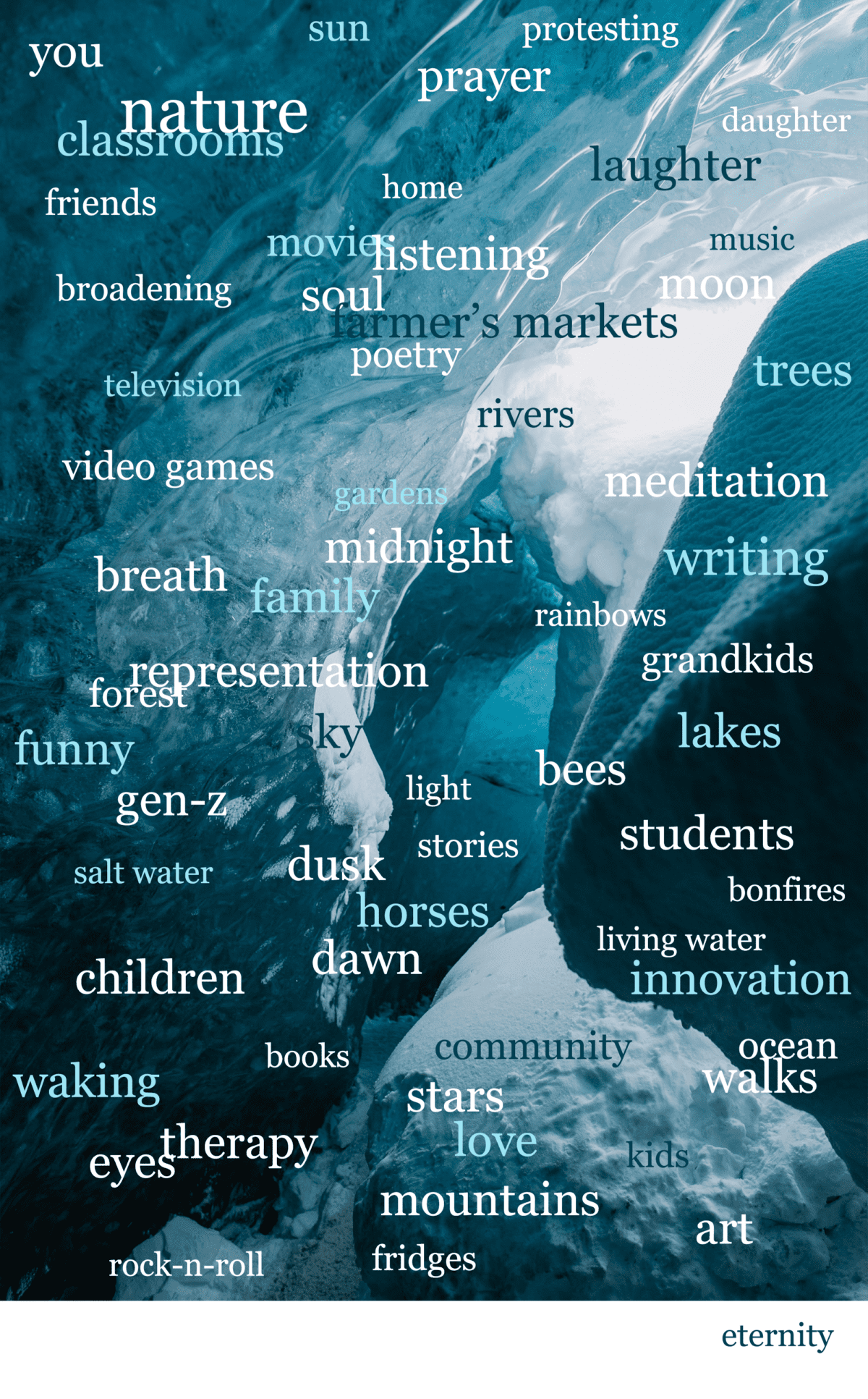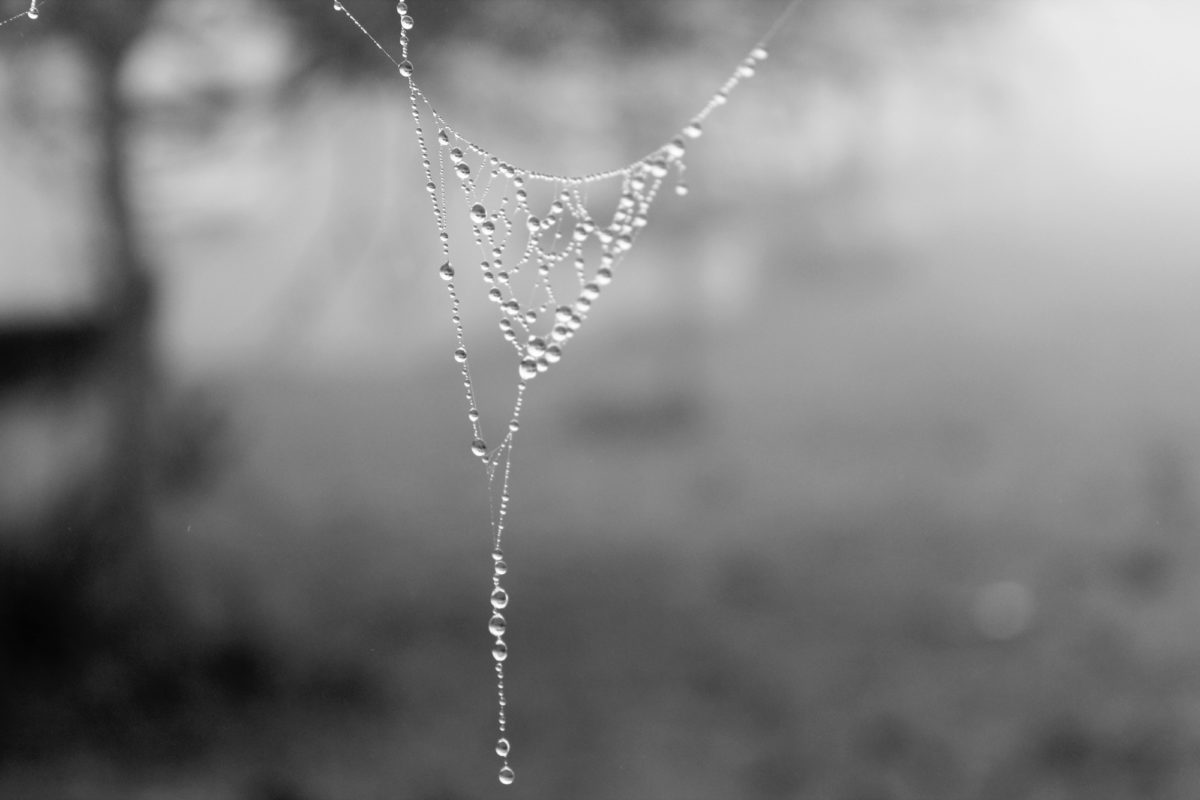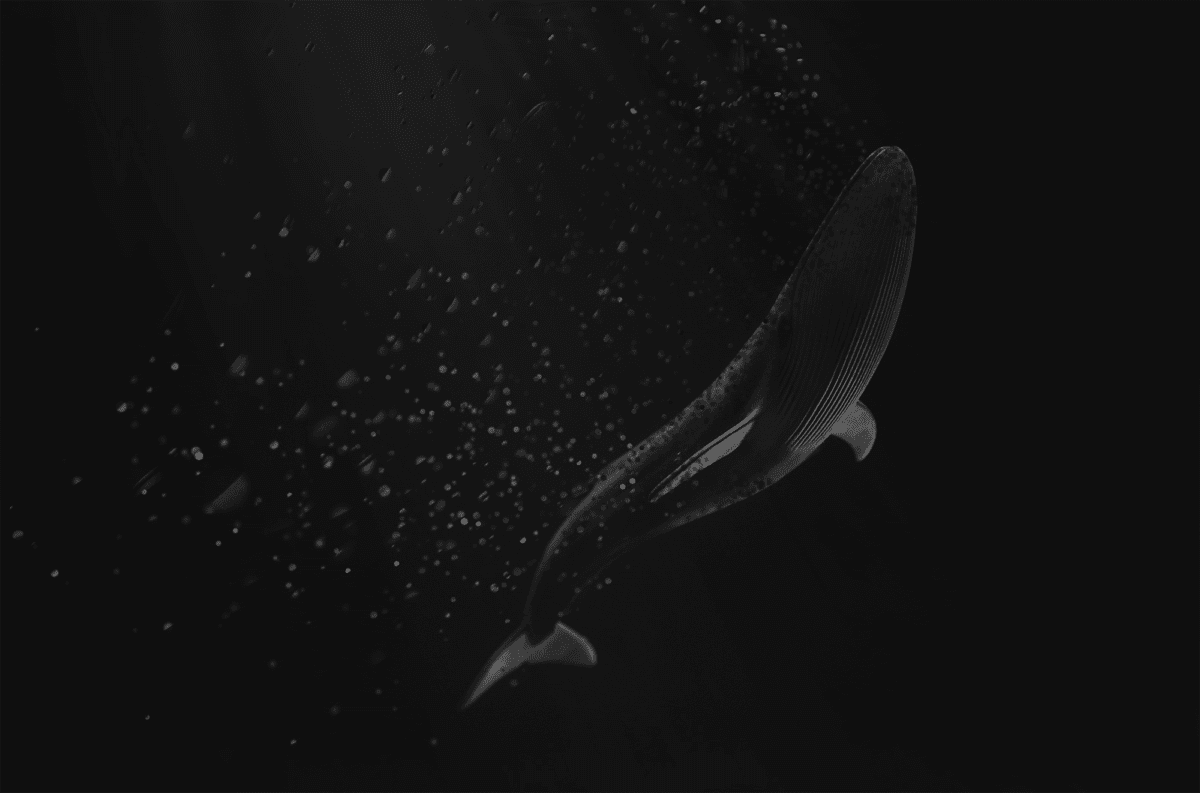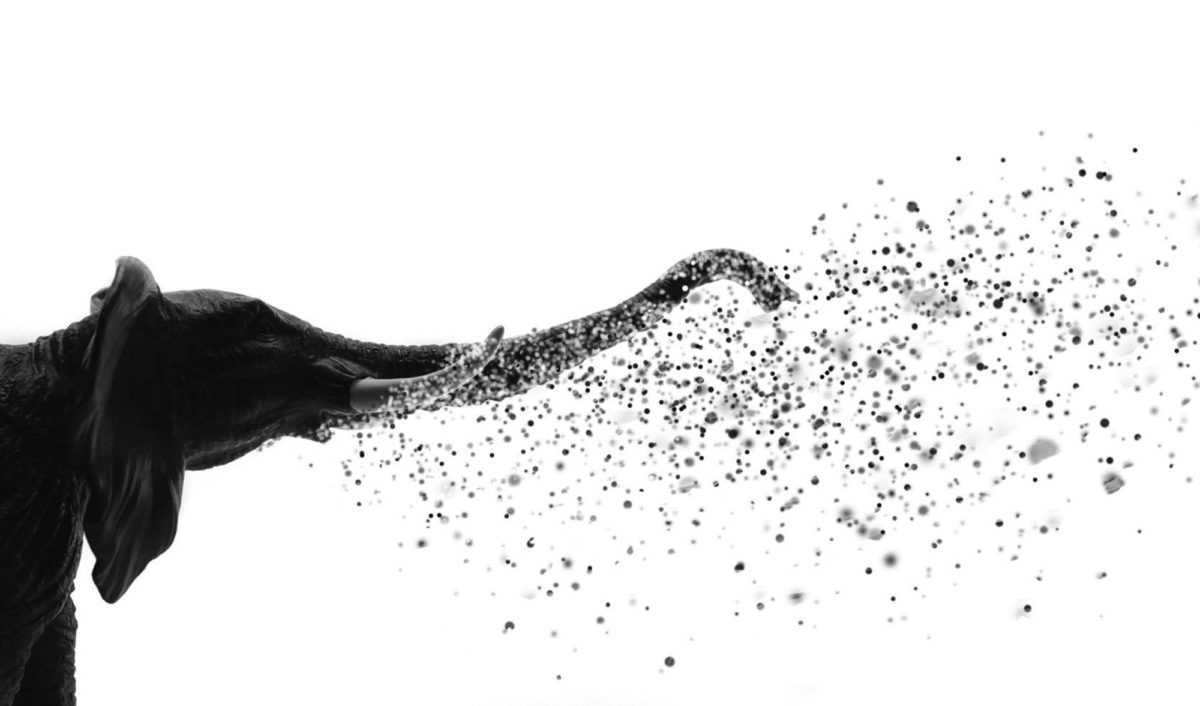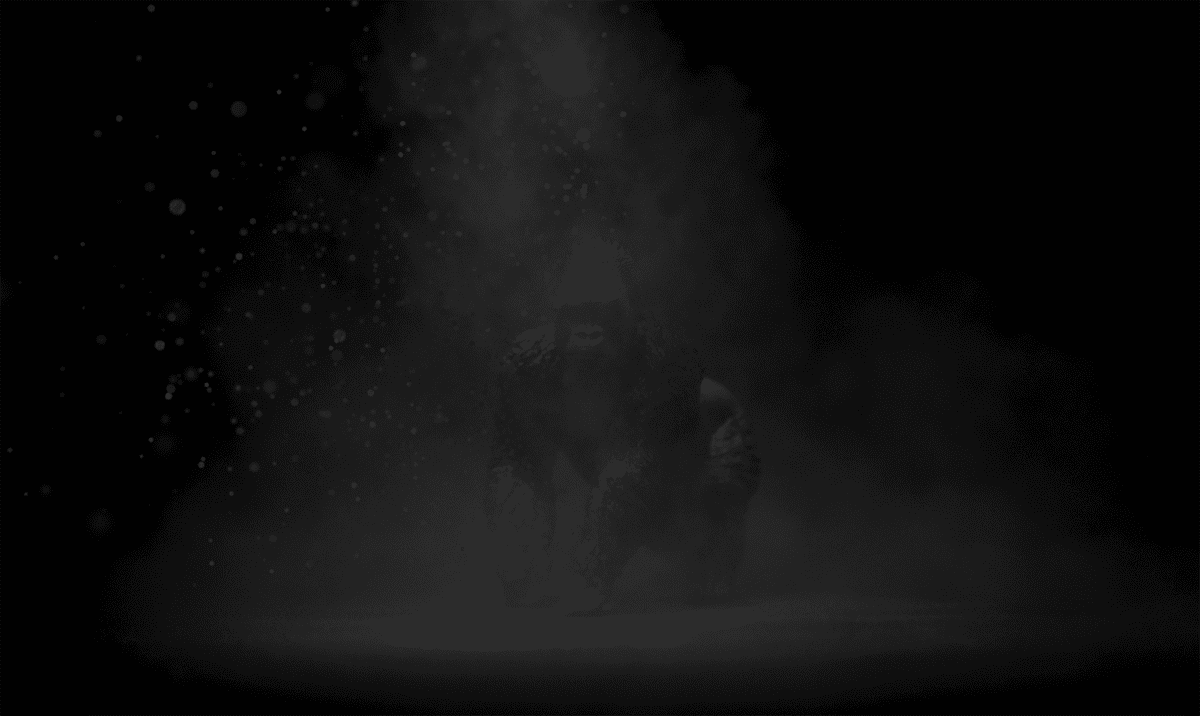readers write: hope in one word
Last month we interviewed an artist who said she didn’t have patience for nihilism: we have a moral responsibility to allow room for redemption in everything we create. In core ways redemption comes from hope.
During this month’s conversation with poet, educator and activist Denice Frohman, she said that she finds hope in nature—in the beauty we have yet to see. This evening we explore dusk, champagne days, and animals that face extinction.
The theme of hope is open until November. Submission guidelines can be found here.
love,
amanda lezra
Editor-in-Chief
You Never Know Who’s Watching
In Conversation with Denice Frohman
“I felt a purpose. I felt a calling. I am in tune to my purpose and deeply listening to the moments where life says, ‘yes, here.’ And I think life said ‘yes, here,’ not because I think I have something to give, but because I deeply believe in the radical process of learning together. I believe in relationships not as transactions, but as spaces for transformation.”
Summer Leaves
Play leapfrog
in the forest
of heel bones
pressed together.
Endless dunes
spread out far
ahead of us.
We leave our
vintage straw
hats lined up
on vines
that flap
like flags
and crosshatch
us pale and tinged
key lime torch.
Summer gives
way to the gates
to hay,
leaves leafs
to splay out,
split on grass.
Blades whistle.
Ground hisses
with hysteria.
The land’s chart
changes to chartreuse
and then fizzes,
coloring the day
champagne.
Clayre Benzadón is an MFA student at the University of Miami, editor of Sinking City, and Broadsided Press’s Instagram editor. Her chapbook, “Liminal Zenith” was published by SurVision Books. She was awarded the 2019 Alfred Boas Poetry Prize for “Linguistic Rewilding” and has recently been nominated a 2020 Best of the Net Poetry Award for “Pink Moon.” Additionally, her work has been featured in places including Pussy Magic, Kissing Dynamite, Hobart, and forthcoming in ANMLY, Fairy Tale Review, and Crêpe & Penn.
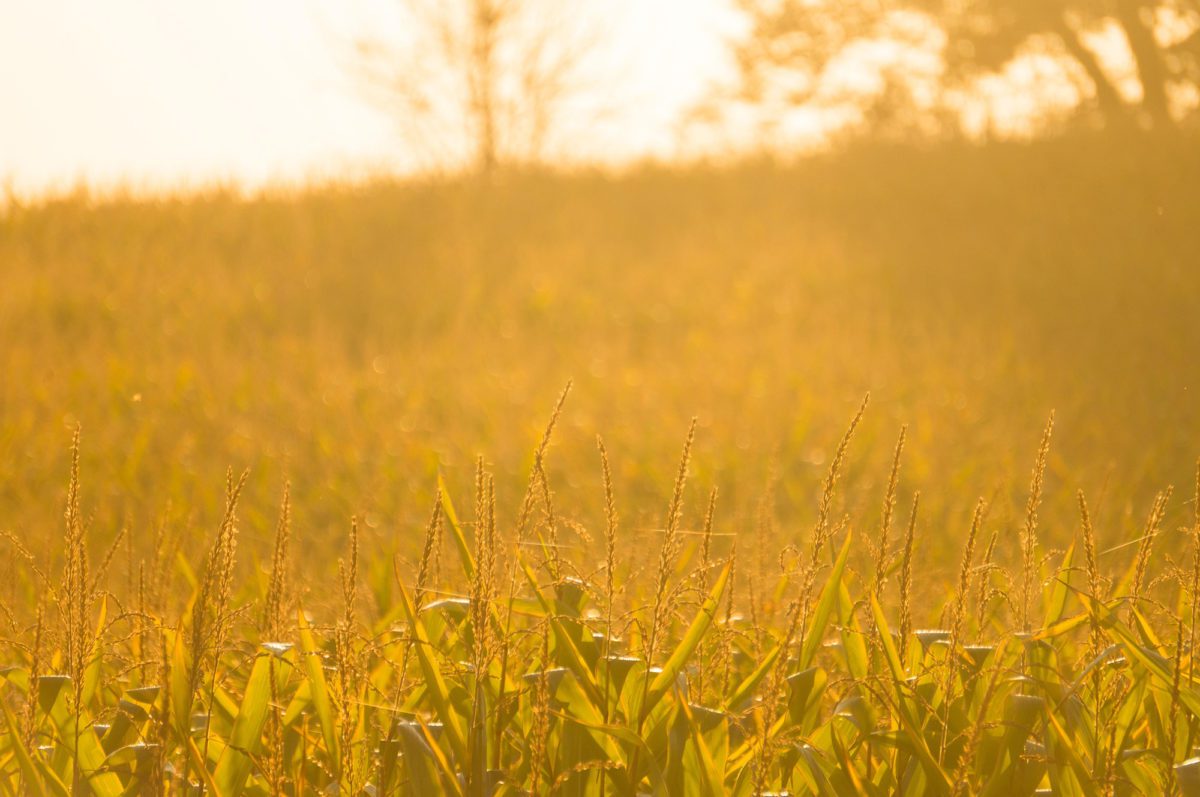
Gifts for a Dry Country
We came down from the mountain and found the rain starting.
Grass between stones. The weight of wet wool. Oranges
bursting when peeled. The clouds hanging blue
against the gray sea. I gave you an iris, petals curved down
like the fall of your hair. I gave you a star,
rays scratched in the mud, trailing out. Trailing out.
Iris sharp in the dusk. A star low, between leaves,
bright like the oranges. Close to your hand.
Ursula Whitcher is a mathematician, writer, and editor who lives in Ann Arbor, Michigan and appreciates patterns of all sorts. Ursula’s poetry and fiction may be found in venues including The Cascadia Subduction Zone, VoiceCatcher, The Lesbian Historic Motif Podcast, and Goblin Fruit, or by traversing the links at yarntheory.net.
From The Endangered Species Series
The facts below are from The World Wildlife Fund, gathered by photographer Yanina May.
Although commercial whaling no longer represents a threat, climate change and its impact on krill (shrimp-like crustaceans), blue whales’ major prey, makes this cetacean particularly vulnerable.
Two years ago, China took the monumental step of banning elephant ivory trade within the country. Dec. 31, 2017 was the last day it was legal to buy or sell ivory there.
The population of mountain gorillas has continued to increase in recent years; in November 2018 their listing changed from Critically Endangered to Endangered.
“We can create change and bring hope.”
readers write: hope in one word
Last month we interviewed an artist who said she didn’t have patience for nihilism: we have a moral responsibility to allow room for redemption in everything we create. In core ways redemption comes from hope.
During this month’s conversation with poet, educator and activist Denice Frohman, she said that she finds hope in nature—in the beauty we have yet to see. This evening we explore dusk, champagne days, and animals that face extinction.
The theme of hope is open until November. Submission guidelines can be found here.
love,
amanda lezra
Editor-in-Chief
You Never Know Who’s Watching
In Conversation with Denice Frohman
“I felt a purpose. I felt a calling. I am in tune to my purpose and deeply listening to the moments where life says, ‘yes, here.’ And I think life said ‘yes, here,’ not because I think I have something to give, but because I deeply believe in the radical process of learning together. I believe in relationships not as transactions, but as spaces for transformation.”
Summer Leaves
Play leapfrog
in the forest
of heel bones
pressed together.
Endless dunes
spread out far
ahead of us.
We leave our
vintage straw
hats lined up
on vines
that flap
like flags
and crosshatch
us pale and tinged
key lime torch.
Summer gives
way to the gates
to hay,
leaves leafs
to splay out,
split on grass.
Blades whistle.
Ground hisses
with hysteria.
The land’s chart
changes to chartreuse
and then fizzes,
coloring the day
champagne.
Clayre Benzadón is an MFA student at the University of Miami, editor of Sinking City, and Broadsided Press’s Instagram editor. Her chapbook, “Liminal Zenith” was published by SurVision Books. She was awarded the 2019 Alfred Boas Poetry Prize for “Linguistic Rewilding” and has recently been nominated a 2020 Best of the Net Poetry Award for “Pink Moon.” Additionally, her work has been featured in places including Pussy Magic, Kissing Dynamite, Hobart, and forthcoming in ANMLY, Fairy Tale Review, and Crêpe & Penn.

Gifts for a Dry Country
We came down from the mountain and found the rain starting.
Grass between stones. The weight of wet wool. Oranges
bursting when peeled. The clouds hanging blue
against the gray sea. I gave you an iris, petals curved down
like the fall of your hair. I gave you a star,
rays scratched in the mud, trailing out. Trailing out.
Iris sharp in the dusk. A star low, between leaves,
bright like the oranges. Close to your hand.
Ursula Whitcher is a mathematician, writer, and editor who lives in Ann Arbor, Michigan and appreciates patterns of all sorts. Ursula’s poetry and fiction may be found in venues including The Cascadia Subduction Zone, VoiceCatcher, The Lesbian Historic Motif Podcast, and Goblin Fruit, or by traversing the links at yarntheory.net.
From The Endangered Species Series
The facts below are from The World Wildlife Fund, gathered by photographer Yanina May.
Although commercial whaling no longer represents a threat, climate change and its impact on krill (shrimp-like crustaceans), blue whales’ major prey, makes this cetacean particularly vulnerable.
Two years ago, China took the monumental step of banning elephant ivory trade within the country. Dec. 31, 2017 was the last day it was legal to buy or sell ivory there.
The population of mountain gorillas has continued to increase in recent years; in November 2018 their listing changed from Critically Endangered to Endangered.
“We can create change and bring hope.”
Sign up to receive a new issue of Rough Cut Press the first week of each month.
We will never share your contact information without explicit permission.


